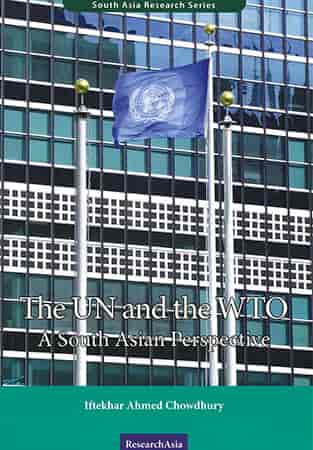The UN and the WTO: A South Asian Perspective
Iftekhar Ahmed Chowdhury
1 March 2015This article examines the extent and causes of globalization and its consequences for the policy strategies of Southeast Asian countries. Added to the digital revolution's contribution to globalization have been substantial policy reforms by national governments in the past two decades. The reforms have been partly unilateral and/or regional (as with the ASEAN Free Trade Agreement). But the GATT/WTO has been crucial during the past half century in encouraging economies to open up more and to commit to staying open to international trade and investment. Greater openness of and interdependence between national economies provides bountiful opportunities for ASEAN economies, but it is not without its challenges. Globalization is raising the rewards for economies choosing good economic governance, but is also raising the costs for economies with poor economic governance. Good economic governance requires a permanent commitment to a liberal international trade and payments regime, and to secure property rights.
-
 More From :
More From :
-
 Tags :
Tags :
-




